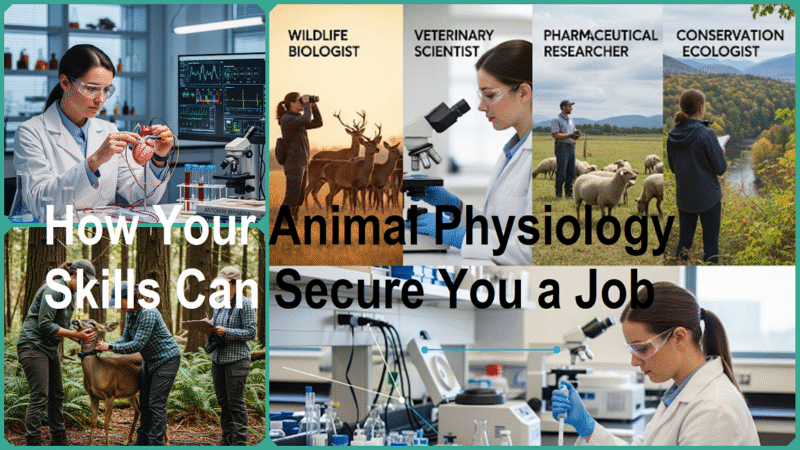Emotional Intelligence and Social Skills for Career Success
Estimated reading time: 18 minutes
An interconnected workplace combined with technical know-how no longer guarantees career success in today’s fast-paced and ever-evolving world. Instead, emotional intelligence (EI) and strong social skills have increasingly emerged as critical and essential drivers for thriving and excelling in professional environments across various industries.
These qualities enable individuals to navigate complex interpersonal dynamics, build meaningful relationships, and adapt effectively to change. For aspiring professionals entering the workforce, mid-career individuals seeking promotion, managers leading teams, and entrepreneurs building lasting relationships, mastering emotional intelligence is a transformative game-changer.

Emotional intelligence refers to the crucial ability to accurately perceive, deeply understand, effectively manage, and skillfully leverage emotions—not only within yourself but also in others—to successfully navigate and handle complex social interactions in various settings.
When this ability is combined with strong social skills such as clear communication, genuine empathy, and constructive conflict resolution, emotional intelligence empowers you to collaborate more effectively with others, lead with meaningful influence, and build a resilient, fulfilling, and rewarding career over the long term.
This post explores in great depth the core concepts, significant importance, and practical, actionable steps for developing both emotional intelligence and essential social skills, supported by credible research findings and insightful real-world examples.
Understanding Emotional Intelligence and Social Skills
Navigating the professional world requires more than just technical expertise; it demands a nuanced understanding of human interaction. In today’s competitive landscape, success isn’t solely defined by what you know, but by how effectively you can work with others.
We will thoroughly explore the essential and foundational concepts of emotional intelligence and social skills, two incredibly powerful and transformative tools that, when effectively combined and applied, can unlock unparalleled career growth, open doors to exceptional leadership opportunities, and significantly enhance your professional journey.
What Is Emotional Intelligence?
Emotional intelligence (EI) is a psychological concept that was popularized and brought into widespread attention by psychologist Daniel Goleman during the 1990s, fundamentally changing the way we perceive and define success in both professional environments and personal life.
Emotional intelligence refers to the skill set that enables individuals to recognize, deeply understand, and effectively manage not only their own emotions but also the emotions of the people around them. This important ability is composed of five essential components that work together to enhance interpersonal interactions and self-awareness:
- Self-Awareness: The ability to recognize and identify your own emotions, as well as to deeply understand how these emotions influence and shape your thoughts, behaviors, and actions in various situations.
- Self-Regulation: The important skill of effectively managing or redirecting disruptive emotions and impulses, allowing an individual to maintain control over their reactions and stay adaptable in various situations. This ability helps in responding thoughtfully rather than impulsively, promoting emotional balance and resilience.
- Motivation: Harnessing your inner emotional drive and determination to consistently and persistently pursue your goals, overcoming obstacles and challenges along the way, ultimately leading to the achievement and fulfillment of your ambitions.
- Empathy: The profound capacity to deeply understand, appreciate, and genuinely consider the emotions, feelings, and unique perspectives of others in various situations.
- Social Skills: The important ability to build and maintain healthy, positive relationships with others, inspire and influence people around you in meaningful ways, and effectively navigate conflicts and challenges constructively to reach mutually beneficial solutions.
Together, these essential elements work in harmony to build a solid and reliable foundation for making effective and well-informed decisions. They also contribute significantly to fostering stronger and more meaningful interpersonal relationships, as well as enhancing the emotional resilience and inner strength needed to successfully navigate and thrive in challenging, stressful, or high-pressure situations that life often presents.
Social Skills Defined
Social skills encompass the practical behaviors, communication abilities, and interpersonal competencies that enable you to effectively connect, collaborate, and work harmoniously with others in a variety of settings. These essential social skills include:
- Active Listening: This involves fully concentrating on what is being said, deeply understanding the message, and responding thoughtfully and appropriately during conversations to ensure clear communication and meaningful interaction.
- Effective Communication: Clearly and thoughtfully expressing ideas, thoughts, and information in ways that others can easily understand and relate to, ensuring that the intended message is conveyed accurately and without confusion.
- Conflict Resolution and Negotiation: Effectively managing disagreements and disputes constructively to ensure that all parties involved can arrive at mutually acceptable and beneficial outcomes, fostering cooperation and understanding.
- Teamwork and Collaboration: Actively working cooperatively and harmoniously within groups or teams to successfully achieve shared common goals and objectives. This involves effective communication, mutual support, and the ability to coordinate efforts among all members to ensure collective success.
- Networking and Relationship-Building: Actively creating, nurturing, and maintaining a wide range of professional connections and relationships that significantly enrich and advance your career opportunities and personal growth within your industry.
- Leadership and Influence: Guiding, inspiring, and motivating others effectively toward achieving shared objectives and common goals. This involves fostering collaboration, encouraging participation, and empowering team members to contribute their best efforts in pursuit of collective success.
While emotional intelligence offers the essential foundation of emotional awareness and regulation, social skills serve as the practical and concrete tools that are used every single day to interact effectively and successfully within any professional environment or workplace setting.
Differentiating Soft Skills from Hard Skills
Unlike hard skills, which refer to technical abilities and expertise specific to a particular job, profession, or industry—such as programming, accounting, or operating specialized machinery—soft skills encompass qualities like emotional intelligence, communication, and interpersonal skills that are universally valuable across a wide range of roles and sectors.
While these particular skills may often be more difficult to measure or quantify in an objective manner, they frequently play an exceptionally critical role in determining an individual’s long-term success and overall advancement within their chosen career path.
According to a comprehensive 2020 LinkedIn Learning report, an impressive 92% of talent professionals strongly believe that soft skills are equally important—if not even more crucial—than hard skills. This highlights the increasing importance of soft skills not only in securing a job but also in thriving and excelling once you are already employed in a role.
Why Emotional Intelligence and Social Skills Matter for Career Success
In today’s rapidly evolving and highly competitive professional landscape, possessing technical skills alone is no longer sufficient to guarantee career success or advancement. While having deep expertise and knowledge in your specific field remains incredibly important, it is equally vital to develop your ability to effectively manage the human side of work, which truly distinguishes you from others.
This post delves into the reasons why emotional intelligence and strong social skills are not just “nice to have” qualities, but rather essential tools for unlocking new opportunities, building and maintaining meaningful relationships, and ultimately reaching your highest potential in any career path you choose to pursue.
Impact on Job Performance and Satisfaction
Emotional intelligence is more than just a buzzword—it has a powerful impact on how well you perform at work and how satisfied you feel in your role. Research from the Harvard Business Review shows that individuals with high emotional intelligence tend to achieve better job performance, earn higher salaries, and report greater job satisfaction.
A compelling example comes from a Gallup study revealing that managers with strong emotional intelligence build more engaged and higher-performing teams. The reason behind this success is simple: emotionally intelligent professionals skillfully navigate workplace stress, manage conflicts with tact, and build trust among colleagues. These abilities create positive work environments that boost productivity and foster strong, lasting professional relationships.
Navigating Leadership and Career Progression
Climbing the career ladder requires more than just technical know-how. Leadership demands a higher level of emotional intelligence—chiefly, empathy, clear communication, and the ability to inspire and manage diverse teams effectively.
According to research in the Journal of Occupational and Organizational Psychology, leaders who display emotional intelligence cultivate better team cohesion and elevate employee satisfaction. These qualities don’t just improve the work atmosphere; they directly enhance organizational success and increase a leader’s influence.
As careers progress and individuals move up the professional ladder, it is often these “soft skills” that truly distinguish exceptional leaders from merely good ones, playing a crucial role in their overall effectiveness and success.
Enhancing Entrepreneurial Success
For entrepreneurs, emotional intelligence is essential to building and maintaining the complex relationships that sustain a business. Whether it’s convincing clients, negotiating with investors, managing teams, or responding to crises, empathy and emotional awareness enable entrepreneurs to communicate persuasively and make better decisions under pressure.
Richard Branson, the founder of Virgin Group, attributes much of his company’s growth and employee loyalty to his empathetic leadership style. His example highlights how emotional intelligence is not just a personal asset—it’s a strategic business advantage that fuels long-term stability and success.
Current Trends and Developments in Emotional Intelligence
In a world increasingly driven by technology and automation, the human element of work has become more valuable than ever. As AI handles routine tasks, the demand for uniquely human skills like emotional intelligence is skyrocketing.
This shift has placed EI at the forefront of leadership development, employee well-being, and organizational success. We will explore the most significant current trends and developments in emotional intelligence, revealing why it’s a must-have skill for the modern professional.
Remote Work Challenges and Emotional Intelligence
With remote and hybrid work models becoming the standard rather than the exception, the role of emotional intelligence has grown even more important. Traditional face-to-face cues such as body language and facial expressions are often missing, making empathetic communication essential for maintaining connection and collaboration.
Professionals with high emotional intelligence excel in virtual environments by practicing active listening, reading subtle cues in tone or wording, and creating psychologically safe spaces despite physical distance.
Diversity, Equity, and Inclusion (DEI)
Emotional intelligence is increasingly recognized as foundational for fostering Diversity, Equity, and Inclusion in the workplace. By promoting cultural sensitivity and respectful communication, EI helps teams transcend differences and work more effectively together.
Organizations committed to DEI prioritize emotional intelligence because it enables individuals to understand diverse perspectives, manage unconscious biases, and build trust across cultural and social divides, leading to more inclusive and innovative work environments.
Technology and Emotional Intelligence
Emerging technologies are playing a novel role in emotional intelligence skill development. For instance, virtual reality (VR) platforms are now being used to simulate social interactions in safe, controlled environments.
These simulations offer immersive experiences that help users develop empathy, practice conflict resolution, and improve communication skills—especially beneficial for remote workers or individuals who find social situations challenging.
Practical Strategies to Develop Emotional Intelligence and Social Skills
Developing emotional intelligence and social skills is a continuous, lifelong journey that involves consistent effort and self-reflection. However, by adopting targeted and intentional practices, you can significantly accelerate your personal growth and enhance your career success in meaningful ways.
Here are seven practical and actionable strategies designed to help you effectively strengthen and refine these essential abilities:
Cultivate Self-Awareness
Start by actively becoming more conscious of your emotions and understanding how they influence your behavior in various situations. Developing this awareness helps you recognize emotional triggers and responses, allowing you to manage your actions more effectively.
- Maintain a detailed daily journal where you consistently record your emotional reactions to a variety of different situations and take time to deeply reflect on what specifically triggered those emotions. This practice will help you gain greater insight into your feelings and the underlying causes behind them.
- Practice mindfulness meditation regularly to observe your feelings and thoughts objectively without attaching any judgment to them, which greatly enhances your emotional clarity and self-awareness over time.
Improve Self-Regulation
Effectively managing your emotional responses plays a crucial role in preventing impulsive reactions and helps maintain positive and constructive professional interactions. By staying calm and composed, you create an environment where thoughtful communication thrives, fostering better relationships and collaboration in the workplace.
- Develop simple and effective coping mechanisms to manage workplace stress, such as practicing deep breathing exercises regularly or taking short, mindful breaks throughout the day to help reset your focus and calm your mind. These small strategies can significantly improve your ability to handle pressure and maintain productivity.
- Make it a consistent habit to pause thoughtfully and spend time reflecting deeply before you respond to emotionally charged emails, intense meetings, or any kind of conflicts. Taking this moment allows you to gather your thoughts carefully and respond in a more measured, constructive way.
Build Empathy
Empathy significantly deepens our connections with others and greatly enhances the quality of collaboration in any environment. By truly understanding and sharing the feelings of those around us, we create stronger bonds and foster a more supportive and cooperative atmosphere.
- Practice active listening by completely focusing your attention on the speaker, making a conscious effort to understand their message without interrupting them or thinking ahead about how you will respond. This means giving them your full presence and avoiding any distractions.
- Try to put yourself in others’ shoes by actively imagining how they might feel, think, or react in different situations, which helps foster a much deeper and more meaningful understanding of their perspective and emotions.
Enhance Communication Skills
Clear and positive communication plays a crucial role in building strong trust between individuals and significantly reduces the chances of misunderstandings occurring. When communication is open, honest, and constructive, it creates a foundation of reliability and confidence, making interactions more effective and meaningful. This approach encourages cooperation and helps prevent confusion or misinterpretation, fostering healthier relationships in both personal and professional settings.
- Focus on expressing yourself in a clear, concise, and assertive manner that thoughtfully respects both your own needs and the needs of others around you. This balanced approach helps ensure effective communication while maintaining mutual respect and understanding in all interactions.
- Use positive body language consistently, such as maintaining steady and confident eye contact along with open and inviting gestures, to effectively reinforce your messages and create a stronger connection with your audience.
Master Conflict Resolution
Conflicts are an unavoidable part of life and relationships, but they can be effectively managed constructively. With the right approach and mindset, disagreements can lead to positive outcomes and growth rather than lasting damage. Understanding how to handle conflicts properly allows individuals and groups to resolve issues in ways that promote understanding and collaboration.
- Approach disputes as problems to solve together, focusing on collaboration and mutual understanding, rather than viewing them as battles to win at any cost. This mindset encourages open communication and teamwork, helping to find solutions that benefit all parties involved.
- Use “I” statements to clearly express your feelings and thoughts without placing blame on others, which significantly helps in maintaining an open and honest dialogue. This approach encourages understanding and reduces defensiveness, fostering better communication and stronger relationships.
Network Authentically
Building genuine and meaningful relationships is key to significantly expanding your professional influence and creating long-lasting connections within your industry. Developing these authentic bonds can open doors to numerous opportunities and help establish a strong network that supports your career growth.
- Focus on building authentic connections instead of merely engaging in transactional networking by demonstrating sincere interest in others and proactively offering assistance whenever possible. This approach fosters deeper relationships and creates meaningful interactions that can lead to lasting professional and personal bonds.
- Attend and actively participate in a wide range of industry events, such as conferences, seminars, workshops, and trade shows, or become involved in relevant online communities and forums. Engaging meaningfully with peers, mentors, and industry leaders in these settings provides valuable opportunities for networking, knowledge exchange, and professional growth.
Seek Feedback and Reflect
Continuous improvement fundamentally depends on the consistent practice of honest feedback and genuine introspection. It is through openly acknowledging strengths and weaknesses, as well as thoughtfully reflecting on past actions and outcomes, that meaningful progress can be achieved.
Honest feedback serves as a crucial mirror, enabling individuals and organizations to identify areas for growth, while introspection provides the deep internal understanding necessary to implement effective changes and foster ongoing development.
- Actively and consistently request constructive feedback from trusted colleagues, experienced mentors, or respected leaders regarding your interpersonal skills and how you can improve them further.
- Take the time to thoughtfully reflect on this feedback and make intentional, well-considered adjustments to your behavior and communication style accordingly, ensuring that your changes are meaningful and effectively address the points raised.
Consistently implementing these strategies will significantly help you boost and develop your emotional intelligence and social skills over time, ultimately leading to enhanced career growth, stronger leadership capacity, and greater personal satisfaction and fulfillment in your work environment.
Real-World Example: How Emotional Intelligence Transformed a Career
Consider Sarah, a mid-level marketing manager who found herself feeling stuck despite her technical expertise and dedicated work ethic. A significant challenge she faced was effectively communicating feedback, which led to tension within her team and negatively impacted both morale and collaboration.
Realizing she needed to grow in this area, Sarah enrolled in an emotional intelligence (EI) workshop. During the training, she learned to recognize her emotional triggers—those moments when stress or frustration would shape her responses. More importantly, she developed the skill to approach difficult conversations with empathy and clarity, aiming to truly understand her team members’ perspectives.
The results of this transformation were impressive. Within just six months, Sarah’s team engagement scores increased by 30%, conflicts significantly decreased, and overall productivity improved. Her ability to lead with emotional awareness and effective communication did not go unnoticed. As a result, Sarah earned a promotion to Director of Marketing.
Sarah’s story is a powerful illustration of the wider reality supported by research from TalentSmart, which shows that 90% of top performers possess high emotional intelligence. Investing in EI development is not only a personal growth opportunity but a proven strategy to unlock career advancement and foster healthier, more productive work environments.
FAQs
Can emotional intelligence be learned?
Emotional intelligence is a valuable skill set that anyone has the potential to develop and strengthen through consistent practice and dedicated commitment. Engaging in structured training programs, receiving personalized coaching, and incorporating daily mindfulness exercises into your routine are all highly effective methods that have been proven to significantly improve your emotional intelligence over an extended period of time.
How does emotional intelligence differ from IQ?
IQ measures cognitive abilities such as logic, reasoning, and problem-solving, while emotional intelligence focuses on understanding and managing emotions to build and maintain healthy interpersonal relationships.
Why are social skills important for remote work?
Remote work environments lack many physical cues like body language and facial expressions. In such contexts, strong verbal communication, empathy, and active listening become essential to maintain team cohesion and ensure productive collaboration.
What are the signs of someone with high emotional intelligence?
People who possess a high level of emotional intelligence are often excellent listeners, able to fully engage and understand others during conversations. They adapt smoothly and quickly to new situations or changes in their environment, demonstrating great flexibility.
Additionally, they handle stress calmly and effectively, maintaining composure even under pressure. These individuals also exhibit sincere empathy, truly understanding and sharing the feelings of those around them. Furthermore, they can express their thoughts and ideas clearly and confidently, doing so without resorting to aggression or hostility in their communication.
How can managers assess their team’s emotional intelligence?
Managers can use standardized emotional intelligence assessments, observe how team members interact in various situations, and collect anonymous feedback to evaluate the team’s emotional climate and identify areas for development.
Conclusion
Emotional intelligence and social skills are no longer optional extras—they are crucial career assets. Whether you’re starting, aiming for advancement, leading a team, or running your own business, developing these competencies equips you to navigate workplace complexities with confidence and grace. The benefits are profound: stronger relationships, improved leadership, increased job satisfaction, and higher earning potential.
By investing time in self-awareness, empathy, communication, and conflict management, you unlock your full professional potential. Begin today—practice active listening, seek feedback, and approach every interaction as an opportunity to hone your emotional intelligence. Your career, team, and organization will thank you.
For aspiring professionals just beginning their careers, mid-career climbers seeking advancement, experienced managers leading teams, and entrepreneurs building their businesses alike, mastering the skills of emotional intelligence serves as the essential cornerstone for achieving sustainable, long-term success in today’s fast-paced and ever-evolving modern workplace environment.
Discover more from Skill to Grow
Subscribe to get the latest posts sent to your email.






